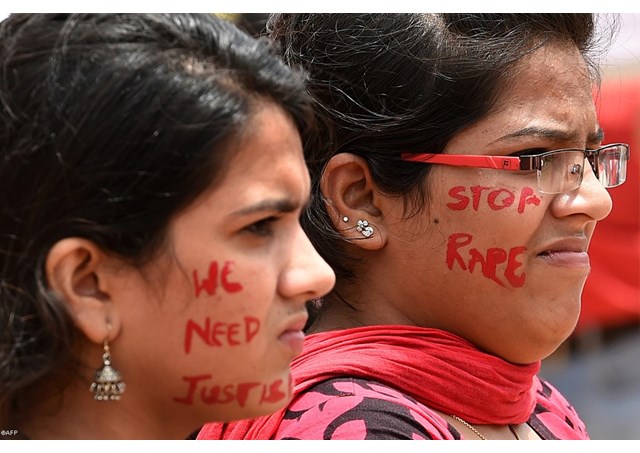
Protection of Women’s rights in India takes a further beating

India’s record for the protection of women’s rights has taken a severe beating once again in the last week with several cases of rape and molestation of girl children and women reported from different parts of the country, troubling the collective conscience of the entire nation. A girl child from the time it is a foetus and as an infant is perceived to be in danger of facing violence and death.
A poll conducted by Thomson Reuters in 2011, according to which India is the fourth most dangerous country in the world for women. Women are threatened by multiple forms of violence including burnings, acid attacks, beatings and rape. According to India’s National Crime Records Bureau, registered rape cases in India have increased by almost 900 percent over the past 40 years.
See all this in the backdrop of a recently published UNICEF report, which claimed that India has lost more than 10 million girls since 2007 to sex selective abortions. About 80 percent of Indian districts have recorded an increasingly skewed sex ratio since 1991, the agency said. Officials with the federal Women and Child Welfare Ministry in New Delhi said the skewed sex ratio also has contributed to an increase in molestation and rapes in northern Haryana state and nearby areas. Punjab has "856 and Haryana only 836 females per 1,000 males.” one official said. In 2013, the Supreme Court attributed ongoing female feticide to ineffective enforcement of the ban on pre-natal sex determination tests and appointed the monitoring panel as a result.
India's Supreme Court on Thursday demanded that all states report on how they enforce laws meant to stop the aborting of female fetuses. India outlawed pre-natal sex determination 20 years ago in order to prevent couples from resorting to female feticide. But an inspection team recently reported the practice continues unabated throughout the country. The National Inspection and Monitoring Committee said in a statement to the court that in most cases, state authorities worked closely with clinics that carried out sex selective abortions.
Violence against women carries on unabated despite several cases getting highlighted, thanks to the media. This is attributed to various causes like unhealthy sexual culture, male dominance of the heavily patriarchal societies, general lawlessness and serious deficiencies in law and order, settling family and caste feuds, lack of proper education, lack of strong and effective laws, weak implementation of laws, delayed police action and insensitive procedures of filing cases, low record of actual convictions by the courts, lack of protection for the victims of abuse, social taboos preventing the reporting of cases and the political interference in certain cases. While political blame games continue, the victims have to go through the ordeals of investigative procedures with no end of the trauma in sight.
A gang rape of a 17 year old pre-novice in Bangalore, attacked four days ago in the Institute of the Sisters of the Holy Nativity by three men and the sexual abuse of a six-year old child in its school premises more than a week ago, have once again woken up an otherwise apathetic public, who have descended on the streets to protest this violence. While the culprits in the six-year-old’s case has been apprehended almost ten days later, the culprits behind the case of the pre-novice are still at large. These are but tips of the iceberg with similar reports coming from various parts of the country that takes pride in its culture of treating women with the respect of a goddess.
Perhaps what is needed is a ‘social revolution’ for empowering women and a reform to change the mind-set and old fashioned thought process of the Indian society. This change cannot be achieved in a courtroom or through mass protest. It requires instilling particular values to boys and girls, at home, at school and in the public sphere. In addition to that, certain conceptions of masculinity and femininity must be readjusted to place emphasis upon respect for the self and for others.
Antara Dev Sen, columnist for the Asian Age, points out that most victims of violent crimes are brutalized not just by their attacker but thereafter by the system they appeal to or live with. Women in India tend not to appeal to the legal and criminal system because, far from being a source of protection and empowerment, they find that this system makes them even more vulnerable to abuse.
With male chauvinistic views of many politicians who have unabashedly blamed women the change seems to be hard to come by. It is going to be a hard fought struggle for the Indian woman to reclaim her dignity.
| All the contents on this site are copyrighted ©. |


